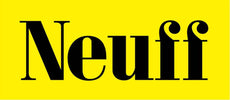
Tips & Strategies for Securing Athlete Sponsorships
BY HARRY KENDALL
Sponsorship is one of the most sought-after elements of the track and field world, with most professional athletes relying on it as their source of income in order to train and compete and even live.
In this latest post I will be giving my view on how to gain sponsorship, with the best strategies for maximising your success rate and allowing you to train without worrying about money or working a full-time job.
These tips will mainly be focussed on what you can do to improve your chances without marketing yourself on social media, for those people who don’t fancy making reel after reel to gain Instagram followers, not that there is anything wrong with this and it is a very effective way to gain sponsorship to help you out.

Tip 1: Sell yourself
Many athletes are already good at this, due to their exposure on social media, but there are ways of making your profile and personality attractive to businesses without having 10k followers on your socials. It is good to have something to send out to companies that can quickly show them your entire profile.
Personally, I made a poster (Canva or Publisher) outlining a few key details:
- General information about yourself (name, age, event, occupation if you have one)
- Your aims and targets as an athlete
- Your current accomplishments and biggest accomplishments as an athlete
- What you are looking for in terms of sponsorship
- What you can do for the companies that would sponsor you
- Contact details such as email, phone number and social media handles
If you make this poster eye catching and compact, it serves as a quick and easy way to inform companies on all your vital information they would need were they to sponsor you.
One of the biggest mistakes I made when I first started attempting to garner sponsorship, was underselling myself and not providing the relevant information to companies. It can be daunting advertising yourself in this way, but if you can put your pride aside and sell yourself effectively, it’s the most efficient way of getting your profile out to as many companies as possible.

Tip 2: Cost analysis
Once you have your poster, you should consider that most companies will want a run down of the specific numbers required in order to work out the level of support they can give you.
In my case, I made an Excel spreadsheet with all my costs broken down into categories such as travel, equipment, nutrition, entry fees etc. These will vary from athlete to athlete and event to event, but it is good to have a rough breakdown of the costs so that companies can see you have put some thought into your proposal and finances.
Once you have this breakdown finished, you can attach it to your poster when you contact companies about potential support.

Tip 3: Volume
After you have completed your poster and spreadsheet to send out to anyone who may be interested in sponsoring you, it is now time to find people to send it to.
Look closer to home
Your first and easiest port of call, should be to get in touch with any family, friends, acquaintances or anyone you know and ask if they, or someone they have knowledge of, would be interested in sponsoring you. This is much easier than approaching other businesses as you will already have something in common and a connection with the company, which may make them more inclined to sponsor you. You never know when someone you know may put you in touch with someone who can help your career.

Do your research on local companies
Once you have exhausted every avenue with people you already know it is time to start investigating companies in your local area.
The temptation with sponsorship, is to go for companies such as Nike, Adidas and Puma, or other sports-based companies, this however, is not the way to go if you wish to be successful. Companies such as these get thousands and thousands of sponsorship requests every day, from some of the best athletes on the planet, so if you are not at major championships or Olympic level, it is very unlikely that they will support you.
Even sports-based brands such as nutrition or protein supplement companies or smaller sportswear brands are inundated with requests for support and sponsorship, and so their market is saturated with athletes and sportspeople looking for support.
A much more trustworthy and profitable approach would be to approach businesses in your local town or village, as they may not have the same influx of sponsorships requests as a sports specific company. Businesses such as law firms, accountants, estate agents or really anything else can be good starting points to contact.

Why small is sometimes best
Here is a list of benefits you may find from contacting these smaller, local businesses:
Fewer requests for sponsorship than other larger companies
Many of these companies may have never even considered sponsoring an athlete before, and therefore won't be swamped with requests and applications.
Tax deductible
This one is more of a benefit for the company, but you can use it in your negotiations. Sponsorship provided by a company is tax deductible, meaning they can deduct it from their total profits and pay less in tax at the end of the financial year, an incentive for them to provide you with funding.
Community image
Local businesses who are not operating nation or worldwide, rely heavily on a good image and reputation in the community in order to operate effectively, thus making it appealing for them to support a local athlete to improve their relations and seem generous to their potential clientele.

Don't overcomplicate the process
A spread sheet will be the easiest way of keeping track of company’s names and contact details. You can create a document with hundreds or thousands of names, there is no limit to the number of businesses you can contact, so the more the better. You should visit all the website of the local companies you can contact, and note down the contact email, phone number, address and names of the managing directors or CEO’s.
Be direct
The next step can seem daunting, but will increase your chances of success tenfold. If you ring up the contact number you have on your spreadsheets for all the companies, you can ask them who at the business is in charge or sponsorship or marketing, and ask for their specific contact details, to fast track the process.
Often, you may be rebuffed and told there is no position for this purpose, but you may then ask for the managing directors contact details, as they will ultimately be in charge of any final marketing decisions.

Tip 4: Your best bet
Now, this idea was floated to me, I believe, by a friend of my aunt’s and turned out to have a high success rate of return emails and sponsorships.
When it comes to local businesses, your best bet may be to approach those who want to build positive community relations, perhaps because their work is noisy or disturbing to local residents, traffic or the environment.
In my experience, I have had most success with companies such as property developers. These companies are unfortunately often involved in contentious developments and they therefore spend a lot of effort improving their connections with the community.
From my research, I found that many of these developers therefore already have community support programmes to help local sports teams, charitable efforts or athletes, often with generous budgets.
All of these developers will have marketing divisions and even marketing suites on site, so it is easier to contact them than some other businesses; you can even go on site to visit them and make contact face to face.

Tip 5: Staying in touch
Hopefully, once you have followed some of these tips, you’ll have secured some support from one or several companies. Following on from this, it is important to maintain good relations with your sponsors. This can mean sending periodic emails with updates on your season plans, competition schedule and any notable performances you have achieved. This will allow the companies to publish this on social media, advertising you and showing their own generosity.
Businesses may also want you to repost their social media presence, particularly the posts featuring their support of you. For them, social media will be where they garner the most positive publicity and new clients, so increasing this presence for them will result in good favour from your sponsors and a healthy relationship.
About Harry Kendall

Harry is a decathlete who represented England at the 2022 Commonwealth Games in Birmingham, and is a member of Tonbridge AC.
He has also won bronze at the 2021 British Athletics Championship, and he claimed victory at the 2022 English National Championship after scoring a record of 7843 points!
Instagram: @harrykendall_
Twitter: @harrykendall567


Leave a comment